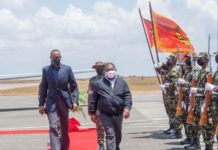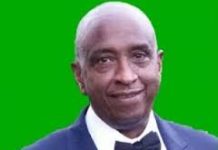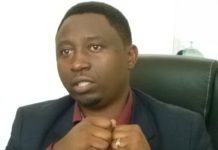For the last several months Rwandans, Congolese, Africans and the international community have watched as the predictable drama from Kagame’s regime plays our once again in the Kivu region of Eastern Democratic Republic of Congo. With the birth of M23, the Kigali regime re-engineered the mutation of an old proxy force ( CNDP) into a new one with the same agenda: 1) weaken DRC 2) loot its natural resources 3) pretend that Rwanda can now solve the problem by paying lip-service to negotiations 4) deceive the world that Rwanda is after Rwanda armed groups , especially FDLR and 5) use this presence in DRC to manipulate the international community against looking at the problems within Rwanda itself. In all this President Kagame’s trademarks remain deception, total disregard for human life, and disrespect to the international community.
First, where is Africa in all this? It is African countries, notably through African Union, that chose Rwanda to represent the continent at the UN Security Council. Like Rwanda, DRC has been bleeding for several years, and has lost 6 millions of its citizens due to Kagame’s wars of plunder and killings. Can’t Africa save DRC and Rwanda from the most vicious and brutal dictator since Idi Amin?
Second, the United Nations has a peacekeeping operation in DRC: over 20,000 personel and an annual budget of close to 1.5 billion US dollars. What is the United Nations doing in DRC if it cannot defend a small African city like GOMA, women and children?
The United Nations Secretary General Ban Ki-Moon has become too close to President Kagame that he has lost objectivity in dealing with the crisis in DRC. In 2010, when the Mapping Report was published, Ban Ki -Moon hurriedly packed his bags and went to Kigali to beg Kagame not to pull out Rwandan troops from Sudan. The Mapping Report has been shelved. Now as the Goma drama unfolded, Ban Ki-Moon called Kagame, pleading that the later ( Kagame) “use his influence” to stop the advance of M23 on Goma> Incredible! It is the same United Nations that has rewarded Kagame with a seat on the Security Council, and is now failing to hold him and his officers for the violations of international law.
What is the stand of the United States and British Governments on the unfolding tragedy in Goma. Rwanda has invaded a neighboring country and violated DRC’s sovereignity and territorial integrity. President Kagame’s regime is brutal and dictatorial at home, and belligerent in the Great Lakes region. Washington and London have been Kagame’s allies since 1994, and friendship with powerful nations has made him more intransigent and willing to undertake costly risks. It is important for Washington and London to re-evaluate their relationship with Kagame to avoid the “French-Rwanda” disease. In the early 1990’s France was able and yet unwilling to read the signals showing the last days of a regime, committed sins of omission and commission, and has regretted since. France was capable of playing a good influence through a friendly regime of President Habyarimana. It chose not to. The consequences were catastrophic.
Washington and London have a narrow window of opportunity to stop and reverse their unquestioning policies towards Rwanda’s Paul Kagame. Failure to do so in the short and medium term will contribute to even worse tragedies in Rwanda and the Great lakes region. The tide of change my not seem evident to the uncaring, distracted or biased eyes. President Kagame is now the butcher of Rwanda and DRC. He will certainly go. The question is: will he do so peacefully or with unprecedented bloodshed in Rwanda and the region? If Washington and London cannot help Rwandans and Congolese to end this bloodshed and human suffering, at least they should not make matters worse by keeping silent or supporting Kagame as he puts the whole region on fire. It is time for Washington and London to make a choice.
The Rwandan and Congolese people must, as a matter of urgency and survival, work together to save themselves and their motherlands. Rwandans and Congolese people must seek the solidarity of Africans in the struggle against a minority clique under Kagame’s rule. Rwandans and Congolese must seek partners in the international community who regard respect for human rights, peace, freedom and shared human progress as cornerstones of international relations.
It is highly probable that by the time I wake up Goma will be in the hands of Rwanda’s troops masquerading as M23. Afterall, Rwanda has deployed its special forces, and almost a division of its armed forces, its equipment and other resources to take Goma. Rwanda may be then enticed to take Bukavu in South Kivu, or even be lured into DRC’s tempting belly. Even then, Kagame must know this: it will be a futile exercise since, like all his ventures in DRC, he will be forced to abandon it, leaving with bags of coltan, diamonds and gold, and behind him a trail of blood, tears and sweat of Rwandans and Congolese. DRC will, sooner than later, prove to be Paul Kagame’s Achilles heel.
Theogene Rudasingwa































































